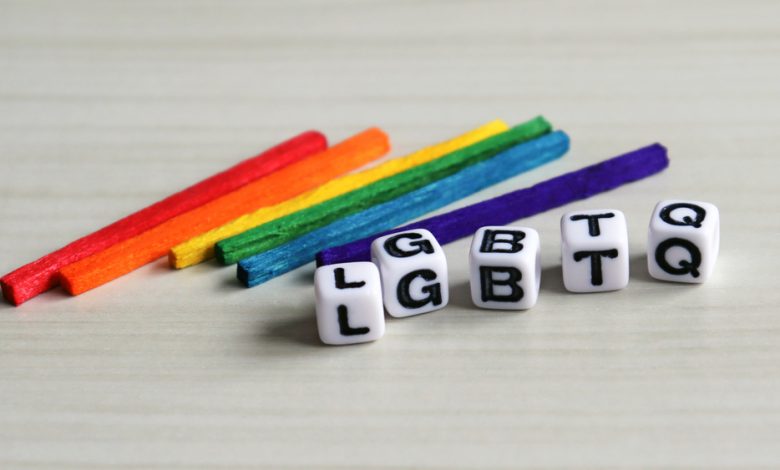
By: Therese Benincasa
With LGBT Pride month upon us, the time has come for a much-needed discussion on that lesser-known (yet proudly and briskly-growing) segment of the LGBT population, the trans-species.
Many people may have not realized before reading this today that the "T" in LGBT refers not only to transgender individuals but also to those who identify as trans-species. Although just as real an occurrence as those who are born into the wrong gender, those born into the wrong species are an under-served and egregiously under-represented segment of the trans population. And unfortunately, trans-species prejudice and discrimination not only exists but is even on the rise. Just last month there was a saddening (and largely ignored) incident at a public school where a 7-year old who identifies as a cat was inexplicably denied kitty-litter accommodations in their school restrooms. In fact, the Trans-Species Advocacy Defenders organization TSPAAD reports that there have been at least 14 such incidents over the past several months in the New England area alone.
To suffer the mortification and uncomfortable awkwardness that accompanies being born human - when one actually strongly identifies as a non-human species - is bad enough. But the troubles do not end there for the trans-species. Obtaining species-affirming care can be not only difficult, but in some cases close to impossible - especially in those narrow-minded Red States where biology is still archaically interpreted through the lens of objective fact, as opposed to by its fluid definition which is both accepted and embraced by enlightened social and scholarly circles today.
One of the most marked challenges the trans-species face, on top of the lack of acceptance on a societal level by some, is the difficulty in obtaining the quality medical care necessary to successfully transition to their true species. Despite the fact that a few clinics in more liberal areas over the past year have had success with transitioning several individuals to their true species, the medical field still has a long way to go in keeping up with the demand for (and in mastering the skills necessary for the performance of) such transitions.
Pent-up demand for transitions from human to animal, including transitions to cats, dogs, giraffes, antelopes, armadillos, and more - is growing, and with each species there is a unique set of expertise needed in order to authentically and successfully complete these medical transitions. And it is clear that such transitions do indeed need to happen, as they have been shown in numerous studies to dramatically decrease the rates of depression and suicide in those afflicted with species-dysphoria.
Today we speak with Nan, an older-than-his-years, articulate 16-year old male giraffe (and former human), who for the time-being still lives in Idaho with the biological family he was born into, and who is eager to detail his own experiences as a trans-species individual in the hopes of helping others in his same situation.
Q. Nan, it's nice to meet you. Can I ask how you first came to know that you are a giraffe?
A. Well I myself knew early on, from an early age. When my classmates around me were eating their school lunches - grilled cheeses, pizza, and whatever...I didn't want to eat those foods. And I just felt different. Then I actually found myself gravitating outside at recess to the trees surrounding the playground, and I guess it was then that I fully realized my true self. Also, I've always had freckles, and I believe that my freckles are really just markers of my larger, unique giraffe spots that are underneath my skin and waiting to come out. So, I finally got the courage to tell my teachers and school guidance counselors about my true identity, and the support they gave me was incredible. I think it really is just about education - just educating the public that we're out here, that we exist, and that trans-species people need and deserve the same level of support in the community that other trans people do. I also want people to know that we're not doing this for attention. We're doing this because it's who we truly are. We just want to feel safe in our true species and live free of the fear of trans-species bigotry and violence. We are simply looking for the freedom to be ourselves.
Q. What would you say to people who say that, well, in actuality you're NOT in fact a giraffe, and that your DNA is human and always will be?
A. I would say that one's species is not determined by genetics; it is determined by how you feel. And also, what does it matter to anyone else what species I am?
Q. Well I think the argument to that might be that society has an interest in maintaining a high level of objective reality, and that if objective reality is sort of just thrown out the window, chaos and confusion on many levels can ensue, which is then immensely damaging to society.
A. Well I would just say to those people to take a look in the mirror and ask themselves why they choose to be so hateful and transphobic. I would also suggest that maybe they are just jealous that they are not giraffes themselves.
Q. Ok, well, moving on...What do you feel are the biggest challenges facing trans-species individuals in the current societal and political environment?
A. I think species-affirming care needs to be recognized for the medical necessity that it is. It can't be something that only the rich can afford, It needs to be available to everyone regardless of their income. Trans-species transition equality is something that needs to be not only fought for but also demanded, and mandated, throughout the country.
Q. Would you mind taking us through your journey, as it relates to the medical field, in your quest to successfully transition to your true species of a giraffe?
A. Not at all. It's essential to get this important information out there about that journey and its challenges - in order to help others navigate those challenges as well. Becoming a giraffe, medically, requires several steps that require a high level of expertise. Neck elongation surgery, along with human-blocking hormones, and pigment therapy to create the spots on the skin, are all essential components, and unfortunately we currently still have a scarcity of doctors trained to perform Human-to-Giraffe procedures. Also, as giraffes have four stomachs instead of one, surgery is necessary to create the three additional stomachs which all giraffes have.
Q. Are there any other changes that you feel are necessary, outside of the medical realm, to provide help?
A. Well yes, and that's funding. For instance, another thing that we as transitioned giraffes truly need is the funding necessary for us to obtain and maintain authentic giraffe diets. That diet consists of the shoots and leaves from acacia trees, which are overwhelmingly found in the continents of Africa and Australia, and the shipping of them to the United States is obviously a necessary component in our species-affirming care. We also desperately need funding to subsidize the creation of authentic habitats for the trans-species, where we can live together in peace. And lastly, we definitely need more of our politicians to step up and to be leaders in the important fight against species inequality.
Q. Do you foresee a time in the near future where things will become easier for trans-species folks like yourself?
A. I do. I think that as we speak out, and as we shine a light on the issues that trans-species people face in the community, I think that, yes, we can certainly facilitate the necessary changes. I think that a large part of it will come, too, once we have more trans-species representation in the media, as well as representation in various art forms like tv, movies, and music. Once the illogical stigma is removed from transitioning away from humanity to other life forms, the better off we as a society will be for it.
Q. We can only hope. But do you think...and please don't be offended by this...that possibly the time, energy, money, and hassle, along with the permanent physical repercussions of trying to pretend to be someone or something else (like the mutilation of your healthy body and becoming permanently sterilized for life by carcinogenic hormones that also cause bone density loss and neurological problems, etc.) could be better spent by focusing on loving yourself as you are - as the perfect, unique, amazing and incredibly valuable person God created you to be?
As Nan looked out the window in response to this question, in a serene and contemplative silence, his guardian angel, by his side since his creation, whispered in his ear the loving and true answer: "Yes."
By Therese Benincasa of Houston, TX (a satirical piece, expect for the ending.)





Leave a Reply
Thank you for your response.
Please verify that you are not a robot.